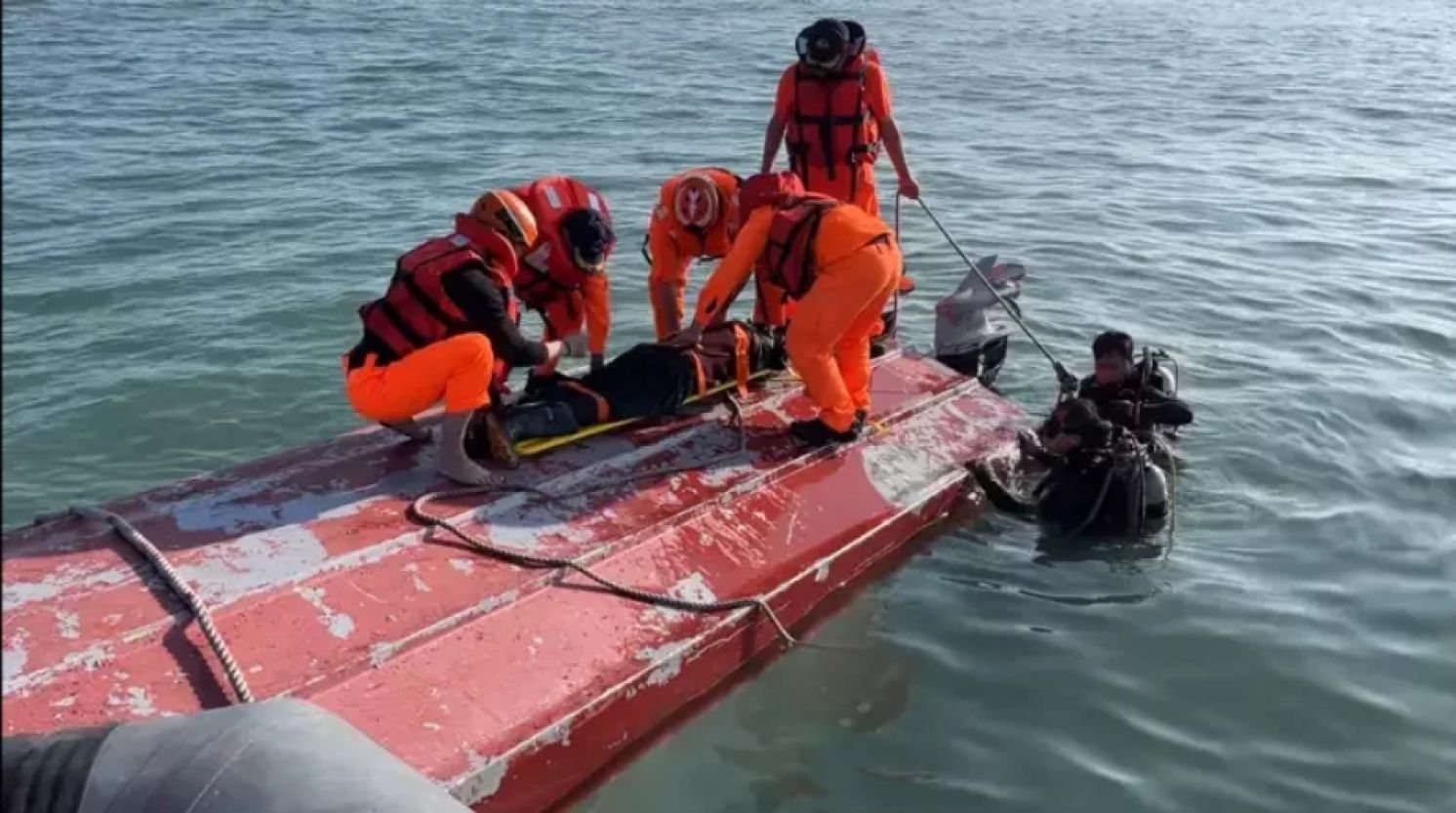
Political Tensions Brewing:2 Dead After Chinese Boat Crosses Border and Was Driven Way
Summary Report by Taiwan Weekly
A mainland Chinese fishing boat, refusing inspection in the waters near Kinmen, was chased by Taiwan’s coast guard vessels, resulting in the boat capsizing and two deaths. The Taiwan Affairs Office (TAO) of mainland China’s State Council promptly issued a strong condemnation, calling it a "malicious incident severely damaging the feelings of compatriots on both sides." The incident has escalated into a cross-strait political event, with concerns in Kinmen that China might deny the "prohibited and restricted waters" between Kinmen and Xiamen, potentially sparking further conflicts in the future.
On the afternoon of February 14, a patrol boat from the Coast Guard Administration in Kinmen discovered a mainland Chinese "unnamed" speedboat trespassing 1.1 nautical miles east of Beiding Island, Kinmen (0.86 nautical miles within the restricted zone). During law enforcement, the Chinese boat capsized, and four crew members fell into the sea. Despite immediate rescue efforts, two individuals did not survive. This is the first incident of casualties in the history of repelling Chinese fishing boats for crossing the boundary.
The TAO demanded that the "Taiwanese side immediately investigate the truth of the incident," respect the historical fact of cooperation by fishermen on both sides in the traditional fishing zones of the Taiwan Strait, ensure the personal safety of mainland fishermen, and prevent the recurrence of such incidents.
TAO spokeswoman Zhu Fenglian stated that over the years, the mainland has adhered to the concept of "one family on both sides," establishing facilities to assist Taiwanese fishermen along the coast, providing shelter, supplies, emergency assistance, and rescue aid. In contrast, the Taiwan authorities, under the Democratic Progressive Party (DPP), have forcibly detained mainland fishing vessels with various excuses, treating mainland fishermen in a rough and dangerous manner. This is identified as the main reason for this malicious incident.
In response, Taiwan's Mainland Affairs Council (MAC) expressed support for law enforcement agencies in strictly enforcing the law to protect people's rights and expressed regret over the unfortunate incident. They also hoped that relevant authorities on the mainland would restrain similar actions by mainland residents.
After the incident, mainland Chinese Internet users expressed strong emotions, suggesting actions like cutting off the water supply to Kinmen, dispatching coast guard vessels to protect fishing, and even recommending sinking Taiwanese coast guard ships.
According to Chieh Chung, deputy researcher at the National Policy Foundation, Communist China might use this incident to further establish new facts in law enforcement in the Taiwan Strait and even in areas surrounding our outlying islands. By doing so, they can demonstrate their refusal to acknowledge our legal jurisdiction in relevant waters and support their legal warfare against Taiwan.
Chung also mentioned that Beijing might demand the release of detained fishermen, refusing to acknowledge our legal jurisdiction. If Taiwan resists, then the mainland might mobilize law enforcement vessels, maritime militia, and fishing boats in designated areas to exert pressure, deliberately escalating tensions to force concessions.
Shih Wei-chuan, former director of the Minister’s Office of the MAC and advisory committee member of the Global Chinese Business Research Center at Soochow University, emphasized that the focus in the aftermath would be whether Taiwan uses this incident as leverage. It remains to be seen if the Taiwanese government insists that China must formally obtain information through the cross-strait negotiation platform. Judging from the current attitude of the MAC, the administration of President Tsai Ing-wen might allow the coast guard's hierarchical channels to handle the situation, avoiding a legal dispute over cross-strait political positioning.